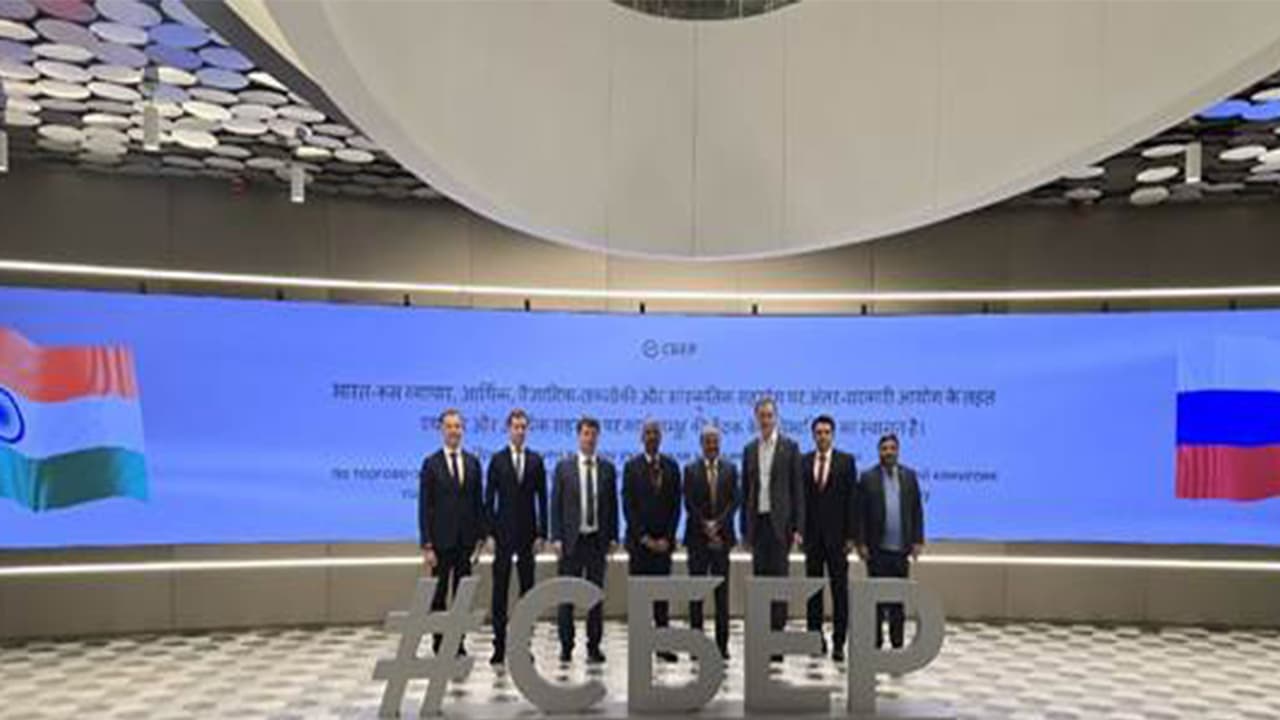India and Russia reviewed their bilateral trade, which has surpassed double the 2014 benchmark. During the 26th Working Group meeting, both nations set a new shared objective of achieving US$100 billion in trade by 2030.
Commerce Secretary Rajesh Agrawal met Vladimir Ilyichev, Deputy Minister of Economic Development of the Russian Federation, for the 26th Meeting of the India-Russia Working Group on Trade & Economic Cooperation under the aegis of the Inter-Governmental Commission on Trade, Economic, Scientific, Technological and Cultural Cooperation (IRIGC).
Bilateral Trade Goals and New Protocol
According to a release from the Ministry of Commerce and Industry, the two sides reviewed bilateral trade, which has risen to well over twice the leaders’ 2014 benchmark of US$25 billion, and took note of the shared objective of US$100 billion by 2030. A forward-looking protocol for trade and economic cooperation across multiple sectors was finalised and signed during the meeting.
Market Access and Sector-Specific Proposals
The Commerce Secretary highlighted the potential for expanding and deepening trade and proposed confidence-building measures to unlock market access. The issues included expedited listing of Indian establishments and a systems-based approach with FSVPS in agriculture, especially marine products and a time-bound pathway in pharmaceuticals covering registration, regulatory reliance, and predictable timelines.
The Working Group noted the potential cooperation for expansion of trade across engineering goods, chemicals & plastics, electronics, pharmaceuticals, agriculture, leather, and textiles, and mapped Indian product strengths in engineering goods, smartphones, motor vehicles, gems & jewellery, organic chemicals, textiles, and the leather sector that can support Russia’s trade de-risking and diversification.
Focus on Services Sector and GCC Ecosystem
In the services sector, the Indian side encouraged the greater procurement of Indian IT-BPM, healthcare, education, and creative services by Russian entities, alongside predictable mobility for Indian professionals to address labour shortages in the Russian market. India’s Global Capability Centre (GCC) ecosystem, around 45% of global GCCs, with over 1,700 centres employing nearly 1.9 million professionals, was presented as a ready platform for Russian companies to strengthen business continuity, cybersecurity, design and analytics, and shared services, enhancing resilience in both goods and services supply chains, the release stated.
Investment Treaty and Payment Solutions
The Indian side took note of the Russian interest in concluding a bilateral investment treaty. Both sides agreed to explore payment solutions that meet the needs of businesses, particularly medium, small, and micro enterprises.
Reaffirming Strategic Partnership
According to the release, India and Russia reaffirmed their special and privileged strategic partnership, a relationship that has stood the test of time. The discussions set a forward agenda centred on trade diversification, de-risking and resilient supply chains in goods and services trade, and diversification of production and supply, aligned to the 2030 trade objective and a stronger, more balanced economic engagement. (ANI)
(Except for the headline, this story has not been edited by Asianet Newsable English staff and is published from a syndicated feed.)
